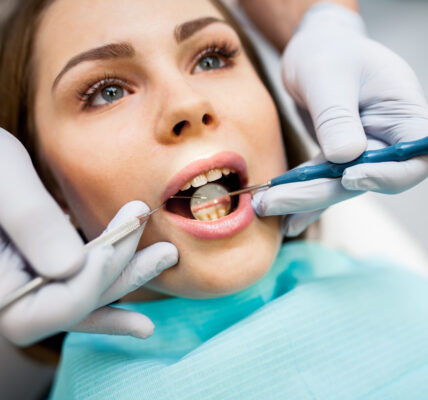Wearing dentures can significantly enhance the quality of life for individuals who have lost their natural teeth. However, maintaining healthy gums is crucial for ensuring that your dentures fit well and function effectively. Neglecting gum care can lead to a variety of issues, including gum disease, infections, and discomfort. In this article, we will explore essential tips for maintaining healthy gums while wearing dentures, helping you achieve optimal oral health and a confident smile.
Understanding the Importance of Gum Care
Healthy gums are vital for overall oral health, even for denture wearers. The gums support the dentures and help maintain their position. When the gums are healthy, they provide a stable foundation for dentures, enhancing comfort and functionality. Neglecting gum care can result in inflammation, soreness, and potential complications such as oral infections. Therefore, adopting good hygiene practices is essential for all denture wearers.
Top Tips for Maintaining Healthy Gums
1. Daily Cleaning Routine
Just as you would brush your natural teeth, it’s crucial to clean your gums daily. After removing your dentures, gently brush your gums, tongue, and the roof of your mouth using a soft-bristle toothbrush. This practice helps remove plaque, food particles, and bacteria that can accumulate and cause gum irritation or infection.
2. Soak Dentures Regularly
Soaking your dentures in a cleansing solution overnight is essential for maintaining their cleanliness and preventing the growth of bacteria. Follow the manufacturer’s instructions for cleaning solutions or consider natural alternatives like vinegar or baking soda. Proper soaking helps keep your dentures free from stains and unpleasant odors, which can contribute to gum irritation.
3. Use Denture Adhesive Wisely
If you use denture adhesive, apply it as directed to ensure a secure fit. However, avoid using too much adhesive, as this can lead to gum irritation and discomfort. Regularly check the fit of your dentures with your dentist, as ill-fitting dentures can cause sore spots and inflammation in the gums.
4. Rinse After Meals
After eating, it’s important to rinse your mouth thoroughly, even if you wear dentures. This practice helps remove food particles and reduces the risk of plaque buildup on your gums. If you cannot brush your gums immediately, rinsing with water or a mouthwash can be a good temporary solution.
5. Stay Hydrated
Adequate hydration is crucial for maintaining healthy gums. Drinking plenty of water helps keep your mouth moist, preventing dry mouth, which can lead to discomfort and an increased risk of gum disease. Additionally, staying hydrated supports overall oral health and aids in saliva production, which plays a key role in washing away food particles and bacteria.
6. Avoid Tobacco Products
Using tobacco products can have detrimental effects on gum health, including an increased risk of gum disease and oral cancer. If you wear dentures, quitting smoking or using tobacco can significantly improve your oral health and enhance the longevity of your dentures.
7. Regular Dental Check-ups
Routine visits to your dentist are essential for maintaining healthy gums and overall oral health. During these appointments, your dentist can assess the fit of your dentures, check for signs of gum disease, and provide professional cleaning if necessary. Regular check-ups also allow for early detection of any potential issues, ensuring timely intervention.
8. Adopt a Balanced Diet
A nutritious diet plays a significant role in maintaining healthy gums. Incorporate plenty of fruits, vegetables, whole grains, lean proteins, and dairy products into your meals. Foods rich in vitamins A, C, and D, as well as calcium, are particularly beneficial for gum health. Additionally, limiting sugary snacks and beverages can help reduce the risk of plaque buildup and gum disease.
9. Practice Good Oral Hygiene with Natural Remedies
Incorporating natural remedies into your oral hygiene routine can also promote healthy gums. For example, rinsing with a saltwater solution can help reduce inflammation and promote healing. To create a saltwater rinse, dissolve one teaspoon of salt in a glass of warm water and swish it around your mouth for about 30 seconds before spitting it out.
10. Be Mindful of Changes in Your Mouth
As a denture wearer, it’s important to be aware of any changes in your mouth, including soreness, swelling, or unusual growths in your gums. If you experience discomfort or notice any changes, contact your dentist promptly. Early intervention can prevent more serious issues and help maintain your gum health.
11. Adjust Your Cleaning Techniques
If you notice any signs of gum irritation, consider adjusting your cleaning techniques. Use a softer toothbrush and gentler cleaning methods to avoid further irritation. You might also want to try a denture cleaner that is specifically formulated to be gentle on gums.
12. Consider a Mouthwash for Denture Wearers
Certain mouthwashes are designed specifically for denture wearers and can help promote gum health. Look for mouthwashes that contain antibacterial properties and are free from alcohol, which can be drying to the mouth. These mouthwashes can help reduce bacteria in the mouth and keep your gums healthy.
Conclusion
Maintaining healthy gums while wearing dentures is essential for overall oral health and comfort. By adopting a consistent oral hygiene routine, staying hydrated, eating a balanced diet, and attending regular dental check-ups, you can significantly improve your gum health and enhance the longevity of your dentures. Remember that healthy gums provide the foundation for effective denture use, contributing to a confident and radiant smile. If you have any concerns about your gum health or denture care, consult your dentist for personalized advice and guidance.





